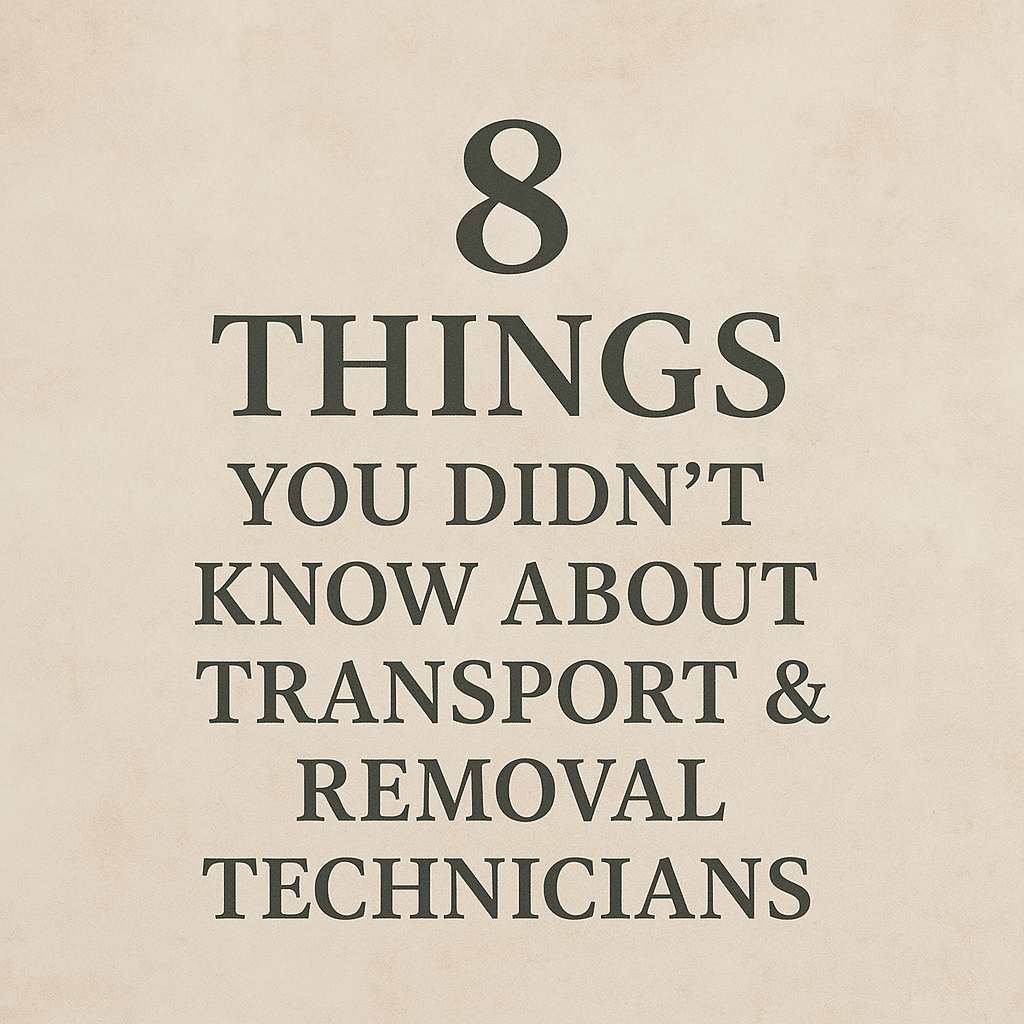When someone dies, the first person to show up quietly and professionally is often the Transport & Removal Technician. They’re not there to ask questions, make judgments, or tell the story. They’re there to carry out one of the most sensitive responsibilities in funeral service—bringing someone into care with dignity and respect.
You may never have heard of this role, but it’s one of the most physically and emotionally demanding jobs in the entire profession. Here are eight things you probably didn’t know about the people who do it.
1. They’re Often the First Point of Human Contact
Transport & Removal Technicians are frequently the first representatives of a funeral home a family meets. They enter homes, hospitals, nursing facilities, or accident scenes during moments of intense grief and shock. Their presence sets the tone for everything that follows.
The compassion, professionalism, and care they show in that moment stays with families long after the funeral is over.
2. The Job Is Physically Demanding
This isn’t a job for someone who wants to sit behind a desk. Technicians routinely lift and maneuver individuals from tight spaces, staircases, bathtubs, hospital beds, and vehicles—often without assistance.
They also manage transport equipment, drive long hours, and sometimes work in harsh weather conditions. Strength, stamina, and situational awareness are essential.
3. They Work All Hours, Day and Night
Death doesn’t run on a schedule, and neither does this job. Many technicians are on-call overnight, on weekends, and during holidays. Whether it’s 2 a.m. or Christmas morning, they show up when needed, ready to do their work with care.
That kind of availability can take a toll. Burnout is a real risk in this field, especially for those without adequate support.
4. Discretion and Professionalism Are Critical
Transport & Removal Technicians work in homes, hospitals, public spaces, and crime scenes. Every situation is different. Some are quiet and peaceful. Others are chaotic, messy, or traumatic.
No matter the environment, technicians must maintain professionalism, avoid drawing attention, and treat the deceased and their surroundings with complete respect.
5. They Handle Paperwork and Chain of Custody
While they’re not funeral directors, technicians are responsible for starting the legal and logistical process. They ensure correct identification, fill out initial paperwork, and maintain proper chain of custody from the place of death to the funeral home or crematory.
Accuracy is essential. One mistake can cause delays, legal issues, or devastating emotional consequences for a family.
6. Emotional Intelligence Is a Must
Technicians often walk into emotionally charged environments. Some families are crying. Others are numb. Some are angry, and some just don’t know what to do. The ability to be present without overwhelming the space is a skill developed over time.
They’re not there to counsel, but they are there to comfort through calm presence, respectful tone, and quiet confidence.
7. They See More Than Most People Ever Will
From nursing homes to accident scenes, from quiet homes to public places, Transport & Removal Technicians encounter death in nearly every form. The job requires a strong stomach and a resilient spirit, but also a capacity to keep showing up with empathy.
Many say the job changes how they view life, relationships, and the value of small kindnesses.
8. Their Work Makes Everything Else Possible
Without removal technicians, nothing else in funeral service can begin. They make sure the deceased is brought into care with dignity, properly documented, and respectfully transported. They’re the starting point of a very important journey.
While most people never learn their name, their work sets the tone for everything that follows.
Final Thought: Quiet Professionals, Lasting Impact
Transport & Removal Technicians don’t wear suits, lead services, or give eulogies. But they perform one of the most essential and underappreciated roles in death care. They are the calm in the storm, the respectful handoff, and the silent promise that someone is being cared for with dignity from the very first moment.
If you have feedback, questions, or ideas for future articles or Information Hubs, please contact us. Your insights help us create valuable content.


